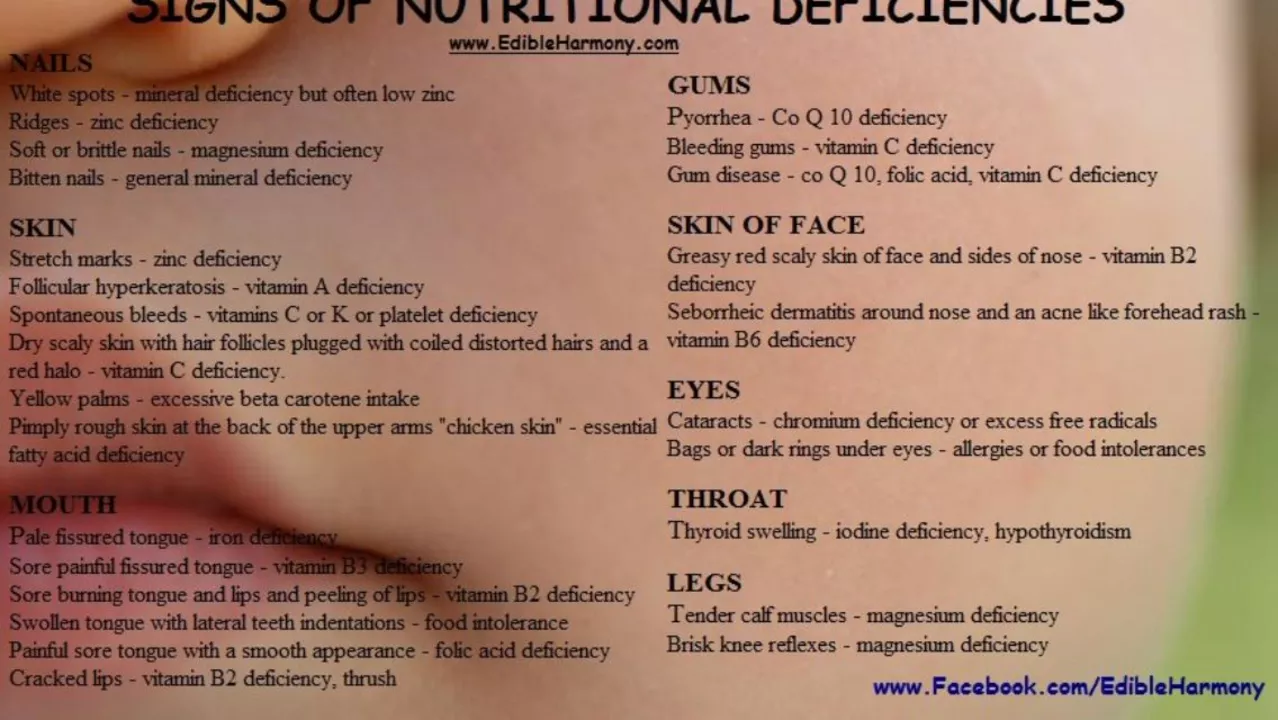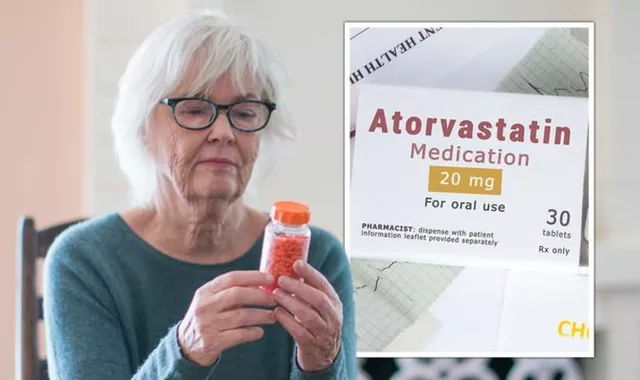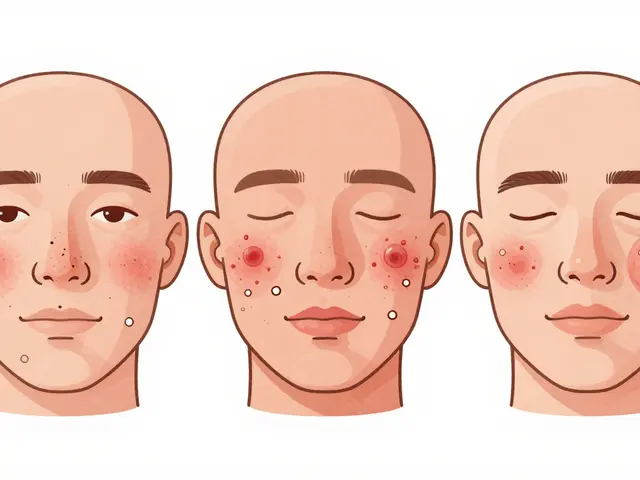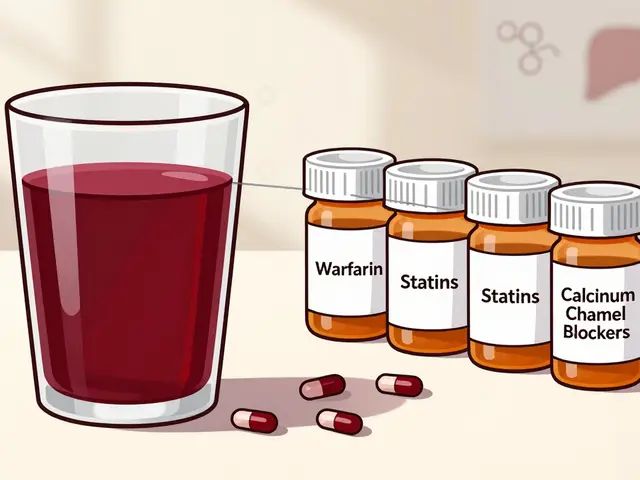Uncovering the Clues: How Your Nails, Skin, and Hair Reveal Vitamin Deficiency
As a health-conscious individual, I always strive to maintain a balanced diet and take care of my body. However, even with the best intentions, it is not uncommon for many of us to fall short in getting all the essential nutrients our bodies need. Our nails, skin, and hair can provide us with hidden signs of vitamin deficiency that we might not notice otherwise. In this article, I will discuss five key areas to watch out for, as well as some tips on how to address these deficiencies. Let's dive in and explore these telltale signs!
The Brittle Nail Dilemma: A Sign of Biotin Deficiency
Have you ever noticed that your nails have become more brittle, prone to breakage, or just aren't growing as fast as they used to? This could be a sign that you are lacking in biotin, also known as vitamin H or B7. Biotin plays a crucial role in the health of your nails, as it helps to strengthen the nail bed and promote nail growth.
To address this deficiency, you can try incorporating more biotin-rich foods into your diet, such as eggs, nuts, seeds, and certain vegetables like spinach and sweet potatoes. Additionally, you may want to consider taking a biotin supplement if you are not getting enough of this vital nutrient through your diet.
Cracks in the Corners of Your Mouth: A Red Flag for Riboflavin Deficiency
Another common sign of vitamin deficiency is the development of cracks or sores in the corners of your mouth, which can be quite painful and frustrating. This condition is known as angular cheilitis and can be a sign of riboflavin (vitamin B2) deficiency. Riboflavin is essential for maintaining healthy skin and mucous membranes, as well as supporting overall energy production.
To boost your riboflavin levels, consider incorporating more dairy products, lean meats, and green leafy vegetables into your diet. If needed, you can also find riboflavin supplements at your local health food store, but always consult with a healthcare professional before starting any new supplement regimen.
Unexplained Hair Loss: Could It Be a Lack of Iron?
If you've been noticing an increase in hair shedding or even bald patches, it might be time to evaluate your iron levels. Iron deficiency is a common cause of hair loss, as it can lead to anemia, which in turn affects the health of your hair follicles. This essential nutrient is responsible for the transportation of oxygen throughout the body, as well as the production of red blood cells.
To address an iron deficiency, try to incorporate more iron-rich foods into your diet, such as red meat, poultry, beans, lentils, and fortified cereals. If you suspect that you might have anemia, it's important to consult with a healthcare professional who can help you determine the appropriate course of action, which may include iron supplementation.
Dry, Flaky Skin: A Warning Sign of Essential Fatty Acid Deficiency
Dry, flaky, or itchy skin can be a sign that you are not getting enough essential fatty acids, such as omega-3 and omega-6, in your diet. These vital nutrients help to maintain your skin's natural barrier function, keeping it hydrated and healthy. They also play an important role in reducing inflammation, which can contribute to skin conditions like eczema and psoriasis.
To ensure that you are getting enough essential fatty acids, try to include more fatty fish like salmon, mackerel, or sardines in your diet. You can also incorporate plant-based sources of these nutrients, such as flaxseeds, chia seeds, and walnuts. If you are still struggling to meet your essential fatty acid needs, you may want to consider taking a high-quality fish oil or plant-based omega-3 supplement.
Pale or Yellowish Skin: A Telltale Sign of Vitamin B12 Deficiency
Finally, if you've been noticing that your skin appears pale or has taken on a yellowish hue, this could be an indication that you are deficient in vitamin B12, also known as cobalamin. This important nutrient is essential for the production of red blood cells and DNA synthesis, as well as maintaining proper neurological function.
Vitamin B12 is primarily found in animal-based foods, such as meat, poultry, fish, and dairy products. If you follow a vegetarian or vegan diet, you may be at a higher risk for vitamin B12 deficiency and should consider incorporating fortified plant-based foods or taking a B12 supplement. As always, it's important to consult with a healthcare professional before starting any new supplement regimen.
In conclusion, our nails, skin, and hair can provide us with valuable insight into our overall health and nutrient status. By paying attention to these hidden signs of vitamin deficiency, we can take the necessary steps to address any gaps in our diet and support optimal health. Remember, it's always best to consult with a healthcare professional if you suspect that you may have a nutrient deficiency, as they can help guide you in making the appropriate dietary and lifestyle changes.






Jennifer Howard
It is imperative to note that the assertion regarding biotin as a panacea for brittle nails is not substantiated by robust clinical evidence. The National Institutes of Health has repeatedly emphasized that biotin supplementation in individuals without a diagnosed deficiency yields negligible results. Moreover, the correlation between dietary intake and nail integrity is confounded by genetic predisposition and environmental factors. One must exercise extreme caution before endorsing unregulated supplements, as they are not subject to FDA oversight and may contain harmful adulterants.
Abdul Mubeen
Have you considered that these so-called 'signs' are merely the result of corporate propaganda? Big Pharma and supplement companies have been funding studies to pathologize normal variations in hair and skin for decades. The real cause? Fluoride in the water supply and EMF radiation from 5G towers. I’ve seen people reverse their 'deficiencies' simply by moving to rural areas and drinking spring water. No supplements needed. Just avoid the system.
mike tallent
Hey, great breakdown! 🙌 I’ve been dealing with dry skin for months and switched to flaxseed oil - total game changer. Also, if you're vegan, don’t sleep on nutritional yeast for B12 - it’s cheap, tasty on popcorn, and actually works. Just get your levels checked before going all-in on supplements. Your body’s smarter than you think 😊
Joyce Genon
Let’s be honest - this entire article is a lazy compilation of symptoms that overlap with at least a dozen other conditions, from thyroid dysfunction to chronic stress, and yet the author reduces everything to 'take a supplement.' Iron deficiency doesn't just cause hair loss - it causes fatigue, brain fog, cold intolerance, and PMS so severe you cry during commercials. But sure, just eat more lentils. And what about the fact that vitamin B12 deficiency in vegans is preventable, but not because of fortified cereals - it’s because of injections? This article doesn’t mention that. It doesn’t mention that biotin supplements can interfere with thyroid labs and cause misdiagnosis. It doesn’t mention that angular cheilitis is often fungal, not nutritional. This isn’t helpful - it’s dangerously oversimplified, and people are going to self-diagnose and ignore real doctors because of this. The tone is so condescending, like we’re all too dumb to understand complexity. You didn’t just miss the point - you ignored the entire map.
John Wayne
Typical.